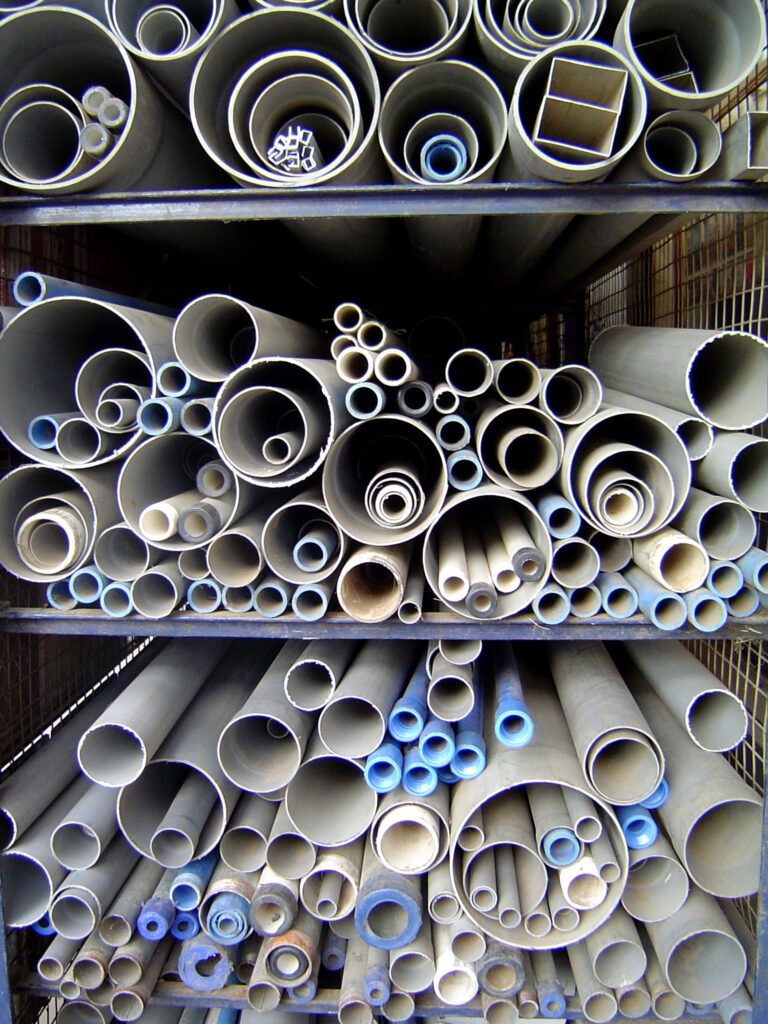PB Re-Pipe
Re-pipe is the common term used to describe installing new water supply lines or pipes into your home and disconnecting the old water supply piping. Most commonly in our area this is done to replace polybutylene piping from the late ‘80s and early ‘90s which have proven to fail often. Depending on the design and construction of your home, the cost and effort to remedy your risk can vary substantially. Planned or preventative replacement is far more economical and convenient than an emergency repair due to failure.
WHAT IS POLYBUTYLENE?
Polybutylene (PB) is a type of synthetic plastic resin. PB is cheap. It’s easy to work with. It resists impact and it’s flexible. Hence, builders saw polybutylene piping as “the pipe of the future”. They began using it instead of copper in new home construction. Especially in Sun Belt states such as Florida. Home builders stopped using PB piping in 1996 and eventually a class action lawsuit. Usually has a stamp reading PB2110; grey but could be silver, blue, white or black; ½”-1” in diameter.
POLYBUTYLENE PIPING FAILURES
In the 1980’s litigations over leaking plumbing due to polybutylene pipes began in California and Texas. The eventual Class Action settlement of $1 billion (Cox v. Shell Oil) in 1995 was enough to ensure that polybutylene water pipes were no longer acceptable by U.S. building codes. It takes about 10-15 years for polybutylene piping to deteriorate. Because it deteriorates from the inside out, it’s difficult to assess the extent of the damage.
By the 1980 homeowners, insurance companies, and builders began to realize that polybutylene piping systems were prone to failures a.k.a. water leaks. Leaks that caused serious damage to homes and their contents. The damage claims were heavy for insurance companies.
WHY POLYBUTYLENE PIPING FAILS
The problem with polybutylene is it reacts with chemicals like chlorine in public water supplies. These chemical reactions leave tiny cracks in the piping material. In time, the pipe fails and water gushes out.
POLYBUTYLENE PIPING AND FLORIDA INSURANCE...
Needless to say, property insurance companies don’t want to insure houses with PB piping. They may exclude coverage for PB piping failures, or charge extra for policies that do cover it. We know that many houses built between 1978 and 1995 have polybutylene pipes. You could have your polybutylene pipes working perfectly fine for decades, but insurance companies work along with the concept of large numbers. In the case of polybutylene pipes, the 70% failure rate is what matters. Insurance companies don’t look at these on a case-by-case basis.
PURCHASING OR SELLING A HOME
When a home containing poly piping is placed on the market, buyers will often discount the price (due to the material defect) – even if the poly has not yet shown any leaks – because it is known that poly piping will leak eventually and the repair is disruptive. Many buyers will not want to take on the risk or the project, so get it done and sell it in the value of your home.
If a seller is aware, it is wise to replace any poly piping before putting a house on the market. Real Estate brokers selling homes containing poly piping should be prepared to be held liable if buyers have a non-disclosure complaint. At the very least, both sellers buyers should be provided with some sort of information regarding poly piping and its dangers, and sellers should be given the opportunity to replace their piping before putting their home on the market.
REALTORS’ NOTES
Different jurisdictions have different legal requirements concerning realtor disclosure, but it seems that judges nationwide are looking more at “what is the right thing to do” in each case. So, you need to protect yourself.
When you represent a buyer, you want to protect their interests (and yours) by asking the listing agent if the home has polybutylene pipes:
- If not known, you can either not show the home or, if the buyers wants to give an offer, make it dependent upon the seller getting a home inspection for polybutylene pipes. (Note that a home inspection can only tell you if there are polybutylene pipes present in a home, not if and when they may leak.) Also, as you show the home, do some checking yourself under the sinks and at the hot water heater.
- If it does have polybutylene pipes, ask if the seller is going to replace the piping or give an equivalent reduction in the price of the home. If a reduction in price, you then need to discuss with your client the need to do a replacement of the piping. When polybutylene pipes are present, always protect yourself with a written disclosure of the situation to your client, keeping a copy for your records with the client initialing. Include in the written disclosure that hundreds of thousands of polybutylene pipes have leaked and a single leak can cause catastrophic damage. You also should have the client sign a waiver agreement, stating you disclosed this information and freeing you of any liability. Then, if they don’t replace the piping and it leaks, they cannot say you didn’t warn them and take you to court.
When you represent a seller, check for polybutylene pipes, ordering a home inspection for them if necessary. If they have polybutylene pipes, suggest they replace them with copper:
- It takes about a week for replumbing and repairing the average home,
- You will be able to add a valuable new selling feature – new water supply piping and reduced risk
- They have more of a chance of getting their asking price, and
- The home should sell faster. If the seller chooses not to replace the polybutylene pipes, give them a release agreement to sign that protects you from all potential liability.
In conclusion, polybutylene pipes are substandard and present realtors with an issue for their clients – both sellers and buyers. Always ensure you protect your client, as well as yourself, when dealing with polybutylene pipes. https://www.sfloridahomeinspection.com/polybutylene-piping-realtors-beware/:

